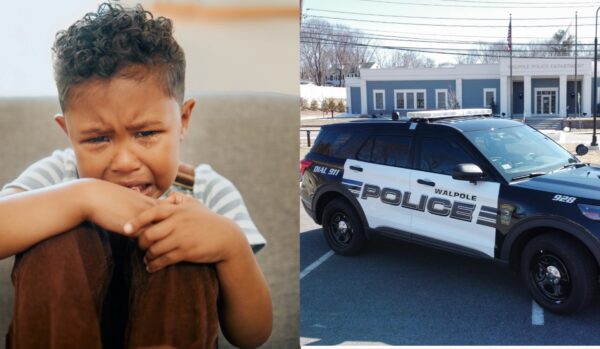A Massachusetts school district and a city police department have come under fire for calling multiple officers to a classroom to respond to a 9-year-old Black student’s mental health crisis by handcuffing him to a pole to restrain him before taking him to a local hospital where authorities held him in adult custody.
The Lawyers for Civil Rights alongside Anderson Krieger LLC law firm in Boston wrote a letter to the Walpole Public School System and the Walpole Police Department demanding the district take action and implement “wide-ranging reform.”
The letter recounts the incident that happened on Jan. 12. A third-grade student with attention deficit hyperactivity disorder, post-traumatic stress disorder and delayed intelligence “became dysregulated while in his elementary school class,” according to both groups.

The student’s individualized education plan has procedures in place to apply positive reinforcement that will help regulate his behavior. Instead of implementing those school measures, the staff called the school resource officer who then called in officers from the Walpole Police Department.
Two Walpole police officers arrived and forcibly handcuffed the child and restrained his arms and legs. At that point, he was taken to a nearby hospital and held in custody where he was unable to reach his mother until he was discharged.
Erika Richmond, an attorney with Lawyers for Civil Rights, stated, “The actions taken by Walpole Public Schools and the Walpole Police Department against this 9-year-old boy were egregious, age-inappropriate, and directly contradicted the school’s own guidance for regulating his behavior.”
She said the incident exemplifies the “adultification” of Black children. This is a form of discrimination where Black children are perceived and treated as older than they are, and WPS staff did frequently describe the child as “big for his age” and “stronger than he looks.” The letter both groups wrote also cites this case as an example of the “over-policing of Black schoolchildren.”
“Because of this bias, a situation that could easily have been de-escalated instead led to a young Black boy being handcuffed and held in adult custody,” Richmond added.
“It was an egregious departure from procedure and basic decency, evidencing either a complete lack of training for this scenario, or worse, willful neglect. It cannot happen again,” said Matthew Bowser, an associate attorney with Anderson Kreiger LLP.
According to WBUR, Walpole Public Schools superintendent Bridget Gough released a statement, which in part said: “Walpole schools are committed to the safety and education of all of our students, regardless of race or other protected characteristics.” Gough stated she could not comment further on the incident without parental permission.
Richmond said the family did not want to speak publicly to protect their son’s privacy.
Walpole police chief Richard M. Kelleher in an emailed letter confirmed that his department did respond to an elementary school in January “to assist staff with a student.” He declined to comment further on the incident or on the actions of the officers who responded.
Both groups demanded that the school district and police department apologize to the family. The boy’s family is currently exploring all legal options to hold Walpole Public Schools and the town’s police department accountable.
A legal memorandum of understanding for Massachusetts schools addresses the powers of school resource officers. It states, “School staff shall not ask an SRO to serve as a school disciplinarian or enforcer of school regulations.”
Additionally, the document states that school resource officers should not “use police powers to address traditional school discipline issues, including non-violent disruptive behavior.” However, for issues of safety, the school can request an SRO who “may act to de-escalate the immediate situation (where feasible) and to protect the physical safety of members of the school community.”


